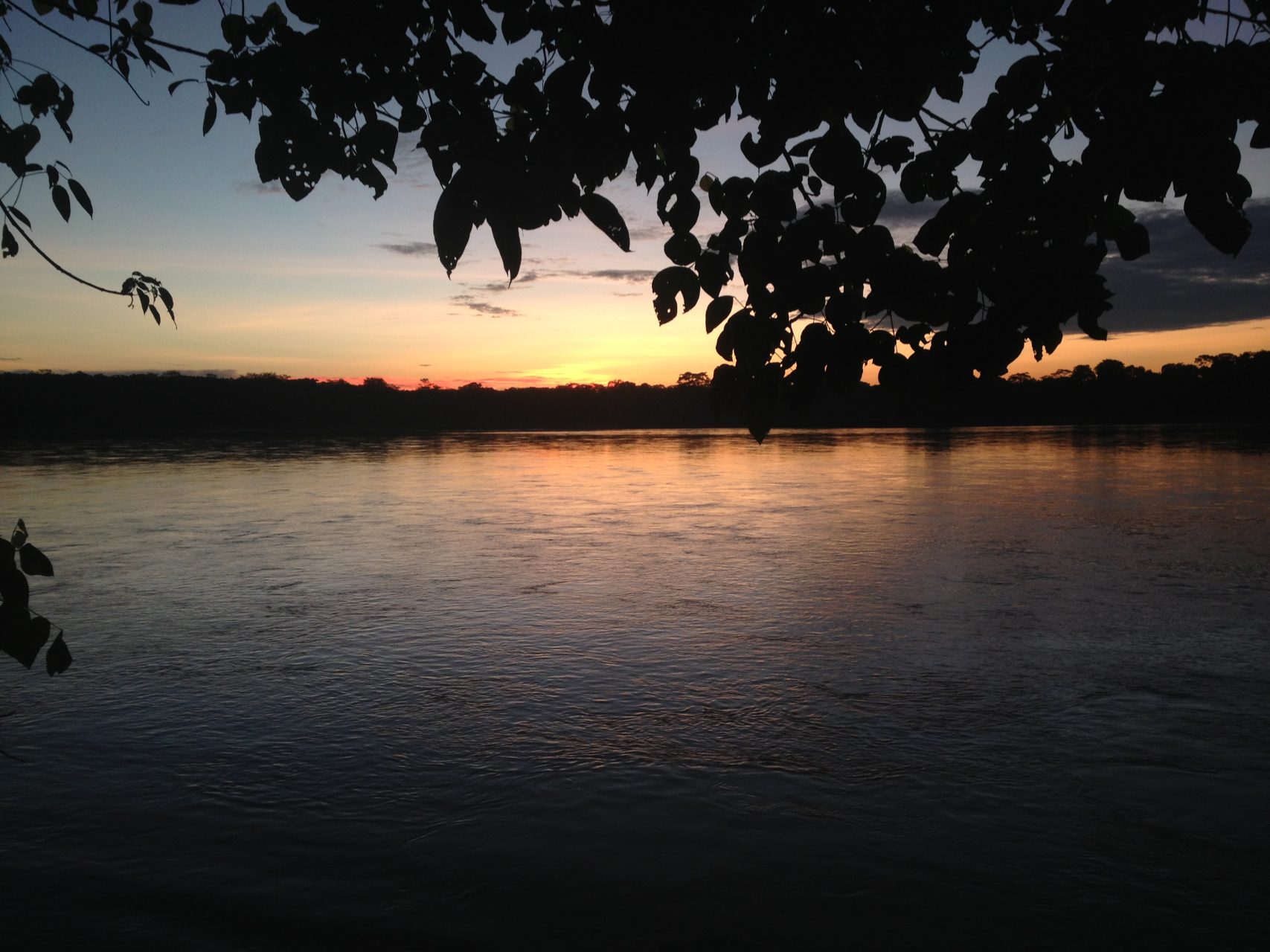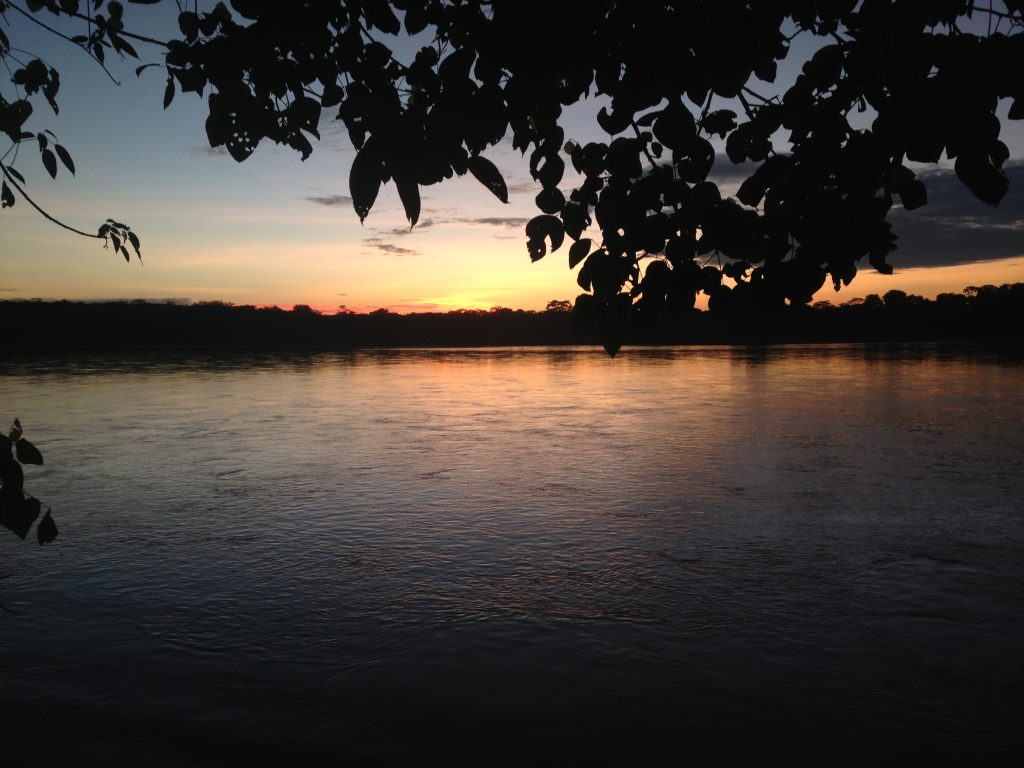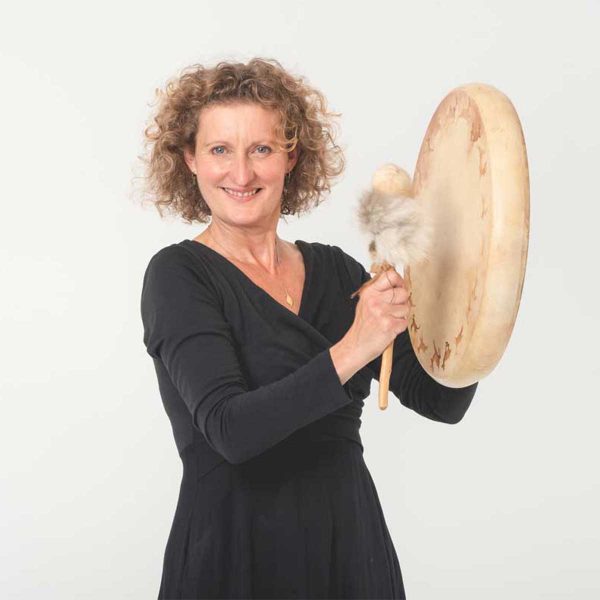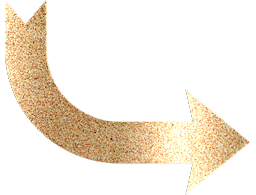In Sharamentsa we get out of the plane into dazzling sun, the earth under our feet damp and hot. The huge river Pastaza, a sinuous powerful gleaming presence right there. We are in a completely different vibration; deeper in, much deeper into the Amazon Basin. Gone are the rolling hills which make Naku feel so contained and intimate. Now the sky opens over the wide river and the extensive mud clearing of this settlement.
We’re in a much bigger village and we are with the Achuar who are a much bigger people. They are not about to go extinct - indeed they number around 18,500 individuals living in the Ecuadorian and Peruvian Amazon.
The Achuar have never been conquered. As Ya’Acov and I experience it, they are a sovereign people and you can feel it.
Achuar history is of a warrior people, at war. This has been something for me to get my head around as “peace person”. The reason they have never been conquered and that the conquistadors left them alone was because of their prowess as fighters. And this came from ongoing intra-tribal warfare in which it was normal to lose men every year.
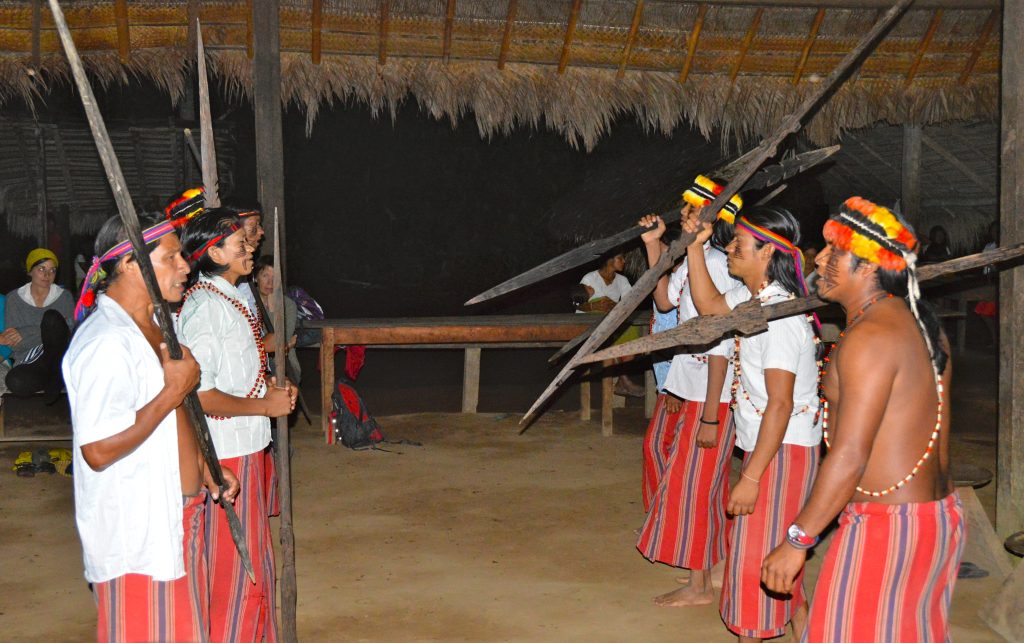
Last time we were at Sharamentsa we heard from one of the oldest people there how it was growing up within that reality. He shared with us the fear that stalked him and his siblings every day, not knowing if this was the day when your father might be killed, or you might lose your mother.
Once again, I had to confront my unexamined assumptions about the old ways, the ‘natural’ ways, being better than the modern ways. He told us how glad he was that his grandchildren can grow up without this chronic fear.
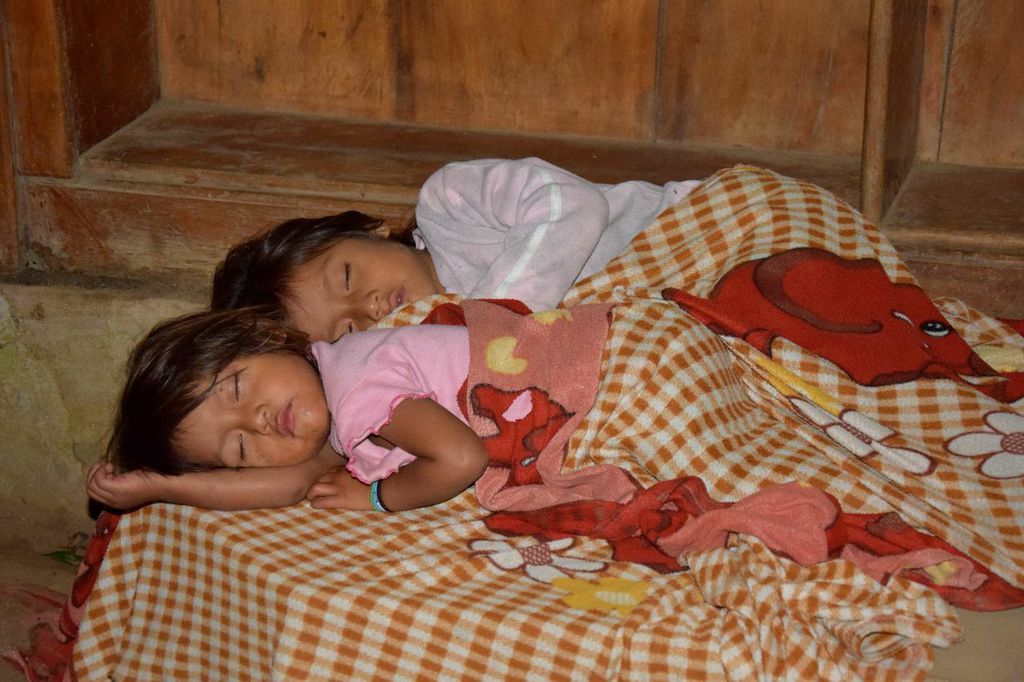
In the 1960s, the Achuar recognised that in order to meet the threat that was coming from the outside world, they needed to join forces and unite with each other. However how do you stop fighting, when, if you do, there is always an unavenged death? In the dream, so we have been told, they learnt of and located a Italian priest who could help them do this. And he did.
However, this Italian priest, whose name was Padre Botazo, did not convert them to Christianity. Rather, he became an “Achuaringi” meaning someone from the outside who becomes Achuar, adopting their language and customs. He married an Achuar woman and throughout his long life helped the Achuar with many medical issues, for example, river blindness. He died a few years ago, esteemed and honoured in the territory.
We arrive in Sharamentsa to a very formal greeting. The men are in the dress that they've chosen to represent Achuar culture. Their faces are painted and they carry their spears.
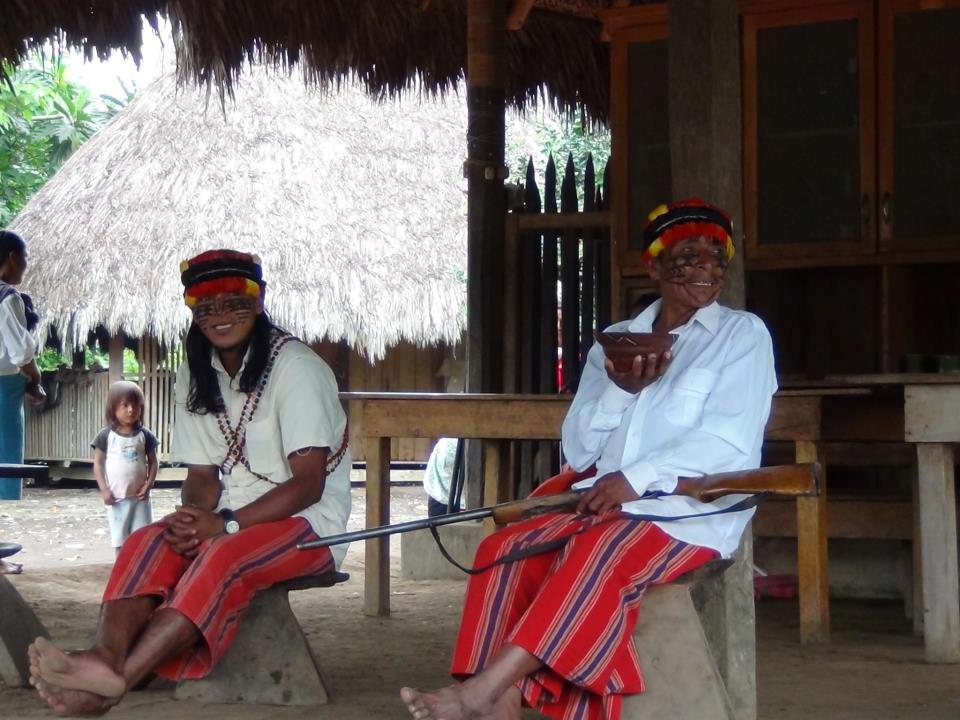
There is a sense of great respect for personal space. We shake hands. There is great warmth and humour, and I feel deeply received, just in a very different way to that of the Sapara.
When you arrive in someone’s house or community lodge, you say “Winyahe” as you step over the line where the wall would be if there was a wall, which there isn’t. And when you leave as you step over the same line, you say “Weyahe”.
Sitting in their big meeting lodge one of the men has a big meeting notebook and keeps the meeting in order re the agenda. I ask whether this is something that has been adopted from the modern world and I am told that of course writing things down is not traditional but that this organised way of being is totally in accord with the clarity, organisation and formality of how they normally do things here.
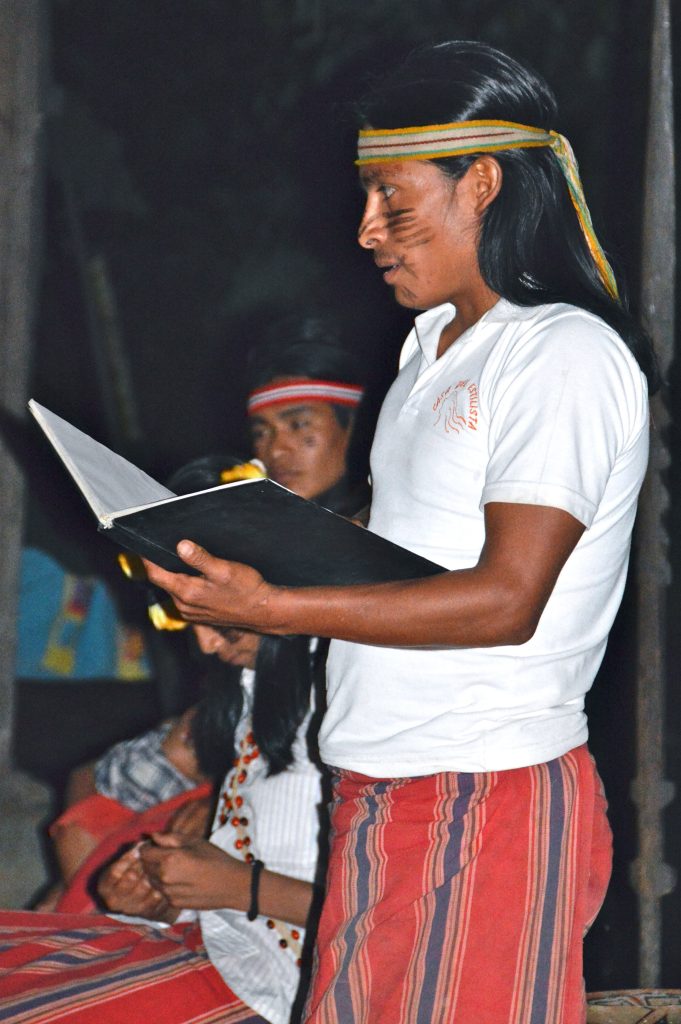
You see it in their weaving (which is men’s work) and in the structure of their roofs.
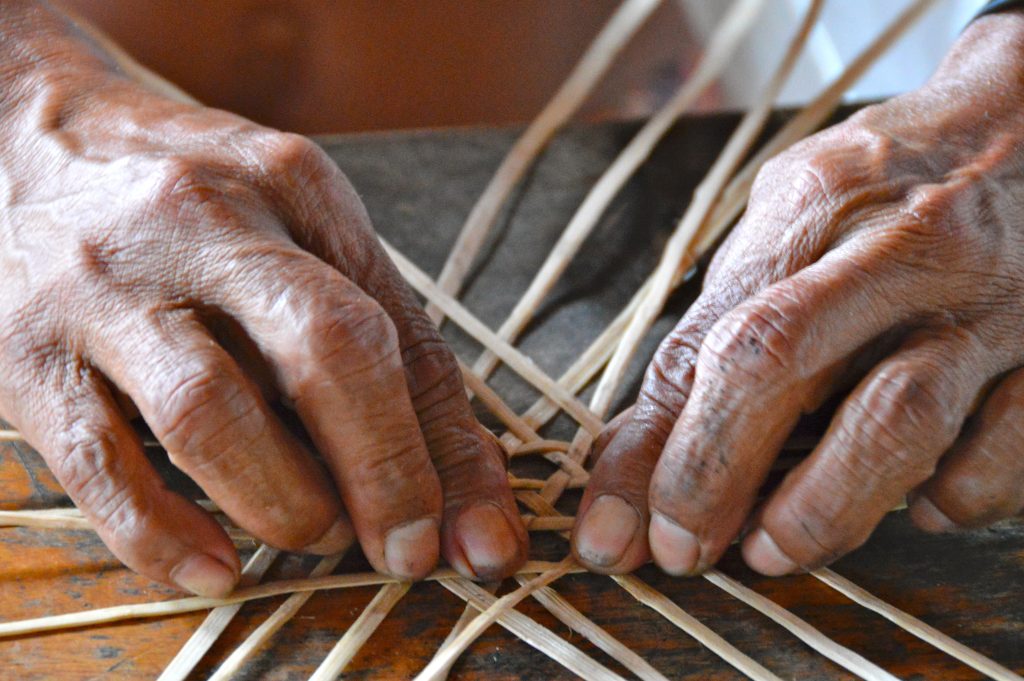
The women make exquisitely fine pots with beautiful line drawings, using their own hair to make the paint brushes.Every time we've been in Achuar territory I've been stunned by the exquisite clarity and precision of the pottery work.
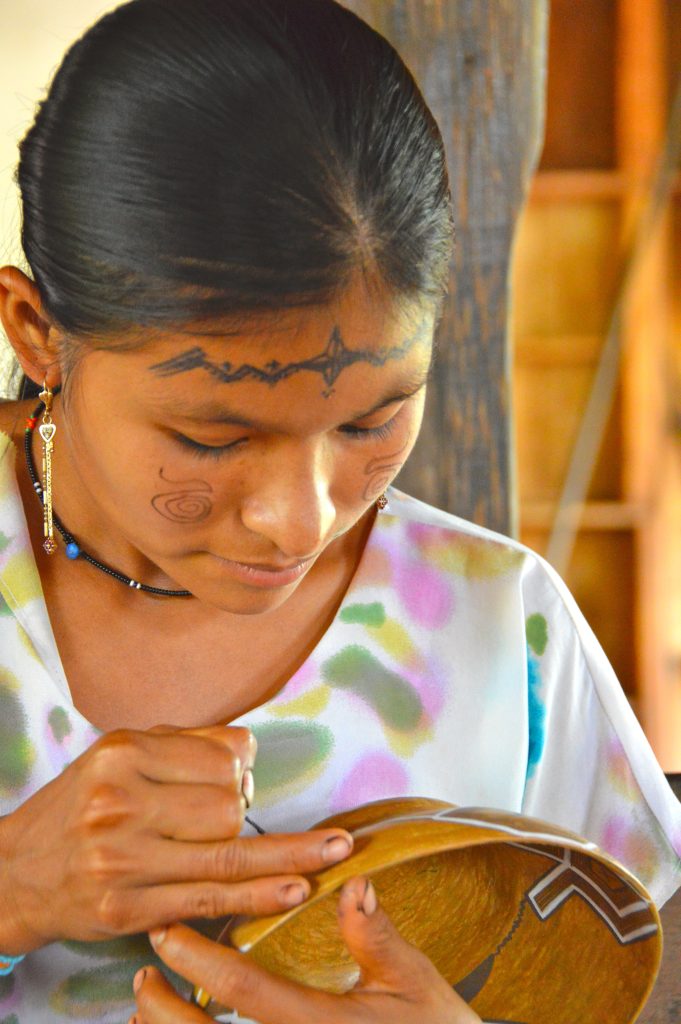
I clumsily assumed somehow, kind of lazily, that this was because "we're deep in the jungle and they've been making pots like this for ever. The tradition is ongoing, isn’t that wonderful?"
After a couple of visits, I realised that this might not be so. So I asked, and the reply blew me away. I think this was when I began to really understand the community power of this people.
As you know, there is a big river here.
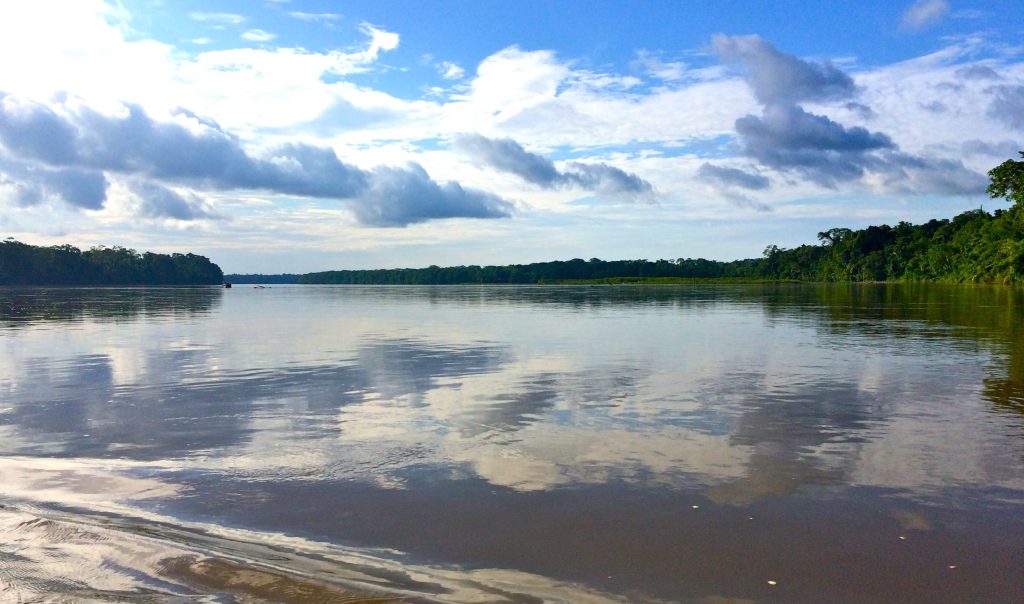
And there are boats that come up the river selling everything from sweets, Coca-Cola, toilet paper and containers, bowls, cups and all that other useful stuff made of plastic. For a while the Achuar bought and used it.
And because everything they'd ever had before in their lives decomposed when it was thrown onto the ground, they went on doing that. Everything returns to the earth, doesn’t it?
They so they began to have a big problem with rubbish and plastic.
They got together in their communities and in the Achuar Federation, which has representatives from each community. Knowing what little I know about how they decide things, I imagine they talked and talked and talked until they were able to make a collective decision. They decided to return to their old ways and to make their pottery as they always have done. This means using clay from the river or from special places they know in the forest, using tree or plant resins and decorated with paint from seeds and fruits. When it is broken it returns to the earth as it always has and as we all will.
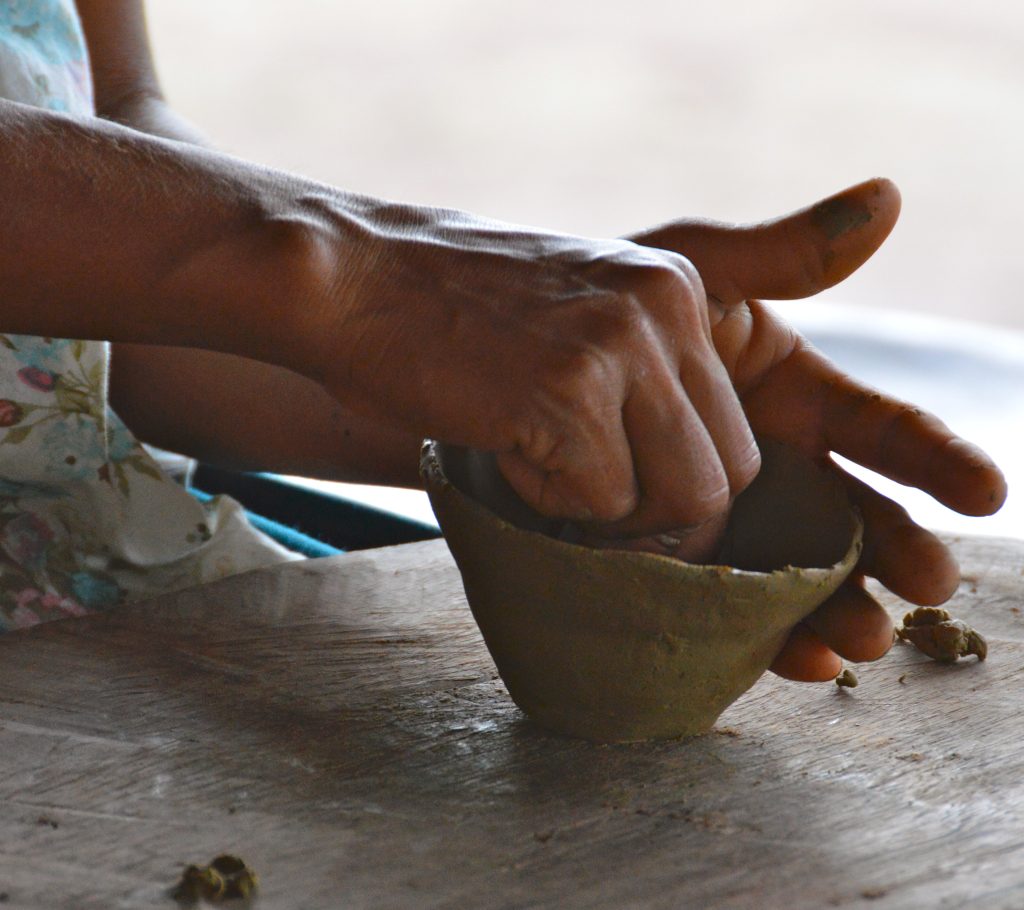
Until I asked, I did not know. I was living inside my unconscious assumption, projecting my own naivety and innocence. It’s fascinating that this blog has curved back to one of the themes that's in #6 about the power of asking.
There is much that is on the move in Achuar culture, as I understand it, especially concerning the roles and leadership roles of women. You can find out about the wonderful Ikiama Nukuri programme that was originally the Jungle Mama's program can be Found Here. Women in the Amazon are taking leadership roles that were traditionally men's roles. Last month, Steve Thorneton, who is now the director of the Pachamama Journeys programme had a female Achuar guide for the first time. He says; She was complete badass when it comes to living in the Amazon. This is a game-changer. Men show up to their roles when defending the forest, like who has the biggest spear or headdress. Many times it creates conflict. Women in those roles tend to speak for all of life, like a mama jaguar defending her cubs which is felt differently by their opponents and more effective. This is a very cool thing to watch happen, as it has a real impact—the Ikiama Nukuri program, which was created with the support of the Pachamama Alliance."
Wow- that is so powerful for me to know.
Wishing you love, support (to receive and to give) and good questions, ]
Thanks for sharing the adventure! Ya'Acov and the group are at Sharamentsa now, involved in some deep cultural sharing and mutual learning. He sends his love. Tomorrow we will hear directly from Agustin.
Find out about our next
Dancing with the Heart of the World
journey in the Amazon
Find out about the Sacred Headwaters Alliance
